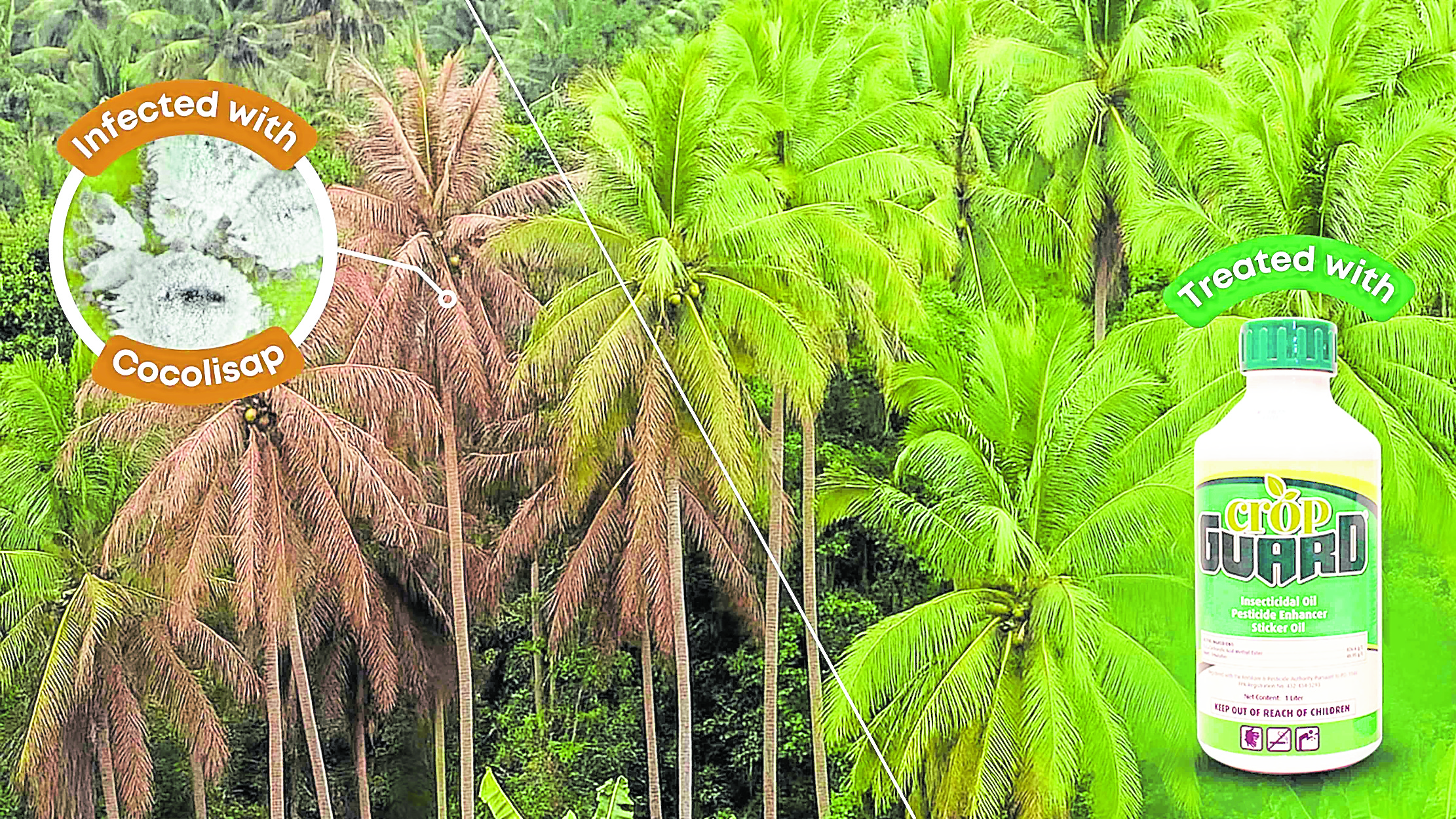

MANILA, Philippines — Chemrez Applied sciences Inc. has secured approval from the Philippine Coconut Authority (PCA) for its touted natural pesticide to fight “cocolisap” or pests that may trigger severe harm to coconut bushes.
In a press release on Wednesday, the subsidiary of Lao family-led D&L Industries Inc. stated its organic-based spray referred to as CropGuard is a non-invasive and residue-free different to safeguard each crops and plantations towards coconut scale insect (CSI) infestations.
The corporate stated that CropGuard is a major remedy choice to successfully forestall the unfold of CSI, thus decreasing the necessity for extreme interventions. It additionally serves as an insect repellent that daunts feeding and egg deposition of bugs.
Primarily based on assessments performed with the PCA and the College of the Philippines Los Baños, it’s endorsed to spray CropGuard twice in coconut plantations, 15 days aside.
“Crucially, the usage of trunk-injected artificial pesticides might invalidate the natural certification of coconut farms,” Chemrez stated.
“This not solely disqualifies farmers from accessing the premium natural market but in addition jeopardizes livelihoods and disrupts whole rural economies that rely upon natural coconut manufacturing for revenue, sustenance, and export income,” it added.
READ: ‘Cocolisap’ victims ask gov’t for P25,000 money assist
Farm harm
The PCA reported final month that the Philippine coconut trade had incurred about P200 million in harm because of the CSI infestation.
The company has but to offer an up to date report, nevertheless it stated earlier that CSI had affected 3,600 coconut farmers and 516,962 coconut bushes in numerous areas.
READ: ‘Cocolisap’ infects coconut bushes; harm estimated at P200M
These are Calabarzon, Bicol, Western Visayas, Jap Visayas, Zamboanga Peninsula, Northern Mindanao, Caraga, and Bangsamoro Autonomous Area in Muslim Mindanao.
Regardless of this, the PCA stated the an infection fee represents a small fraction of the 345 million coconut bushes nationwide.
So far, greater than 3.5 million Filipinos depend on coconut farming as their major supply of livelihood./dda

